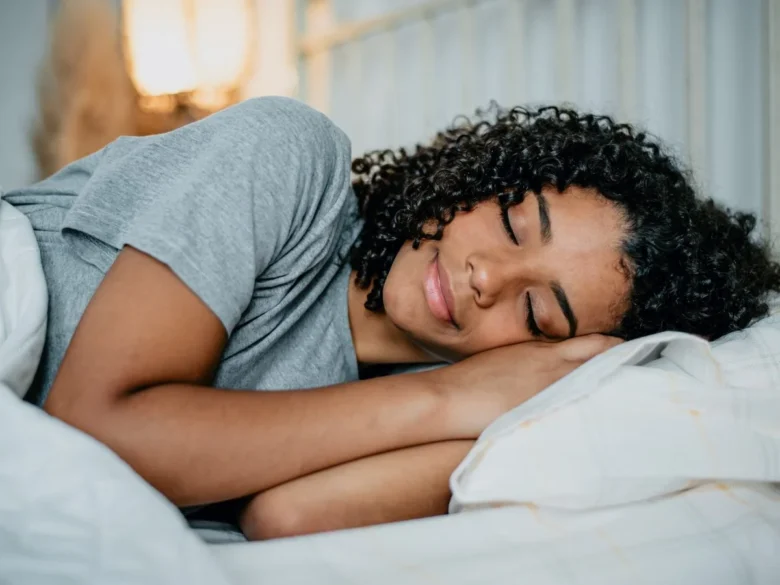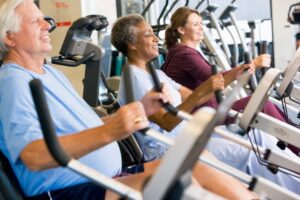Sleep is essential to our health, but our fast-paced world often ignores it. In 2024, sleep hygiene is more important than ever. Sleep hygiene is the habits and practises that help you sleep well. Poor sleep hygiene can cause trouble falling asleep, staying asleep, and waking up refreshed. Insufficient sleep affects mood, productivity, immune function, heart health, and cognitive performance over time. Sleep hygiene can be one of the best ways to improve your health in 2024.
Consistent sleep schedule
Consistent sleep schedules improve sleep hygiene. Your circadian rhythm is regulated by going to bed and waking up at the same time every day. In 2024, more experts emphasize regular sleep, even on weekends. While staying up late or sleeping in on weekends is tempting, it can make it harder to fall asleep and wake up during the week. Maintain a 7-9-hour sleep schedule for better sleep and health.
Optimize Sleep Environment
Sleep quality depends on your environment. Sleep-hygiene enthusiasts in 2024 prioritize sleep-friendly spaces. Make sure your bedroom is cool, dark, and quiet. Block out sleep disruptions with blackout curtains, earplugs, or white noise machines. Buying a comfortable mattress and pillows can also improve your sleep. Reduce clutter and make your bedroom a relaxing space to signal to your brain to rest.
Reduce Blue Light
Smartphones, tablets, and computers emit blue light that disrupts melatonin production. In 2024, good sleep hygiene requires limiting evening blue light. Screens should be avoided an hour before bed. Use blue light filters or adjust device settings to reduce blue light exposure. Reading, meditating, or relaxing can help you relax and fall asleep.
Create a Calm Bedtime Routine
Bedtime routines help your body relax and prepare for sleep. Relaxation techniques before bed are becoming more popular in 2024 for sleep hygiene. Relaxation can be achieved by taking a warm bath, deep breathing, or listening to soothing music. The goal is to relax your body so it can fall asleep. Before bed, avoid intense exercise and emotional conversations, which can make it harder to fall asleep.
Mind Your Diet and Hydration
Daytime diet and drink can affect sleep quality. Improving sleep hygiene in 2024 requires diet awareness. Heavy meals, caffeine, and alcohol before bedtime can disrupt sleep. Coffee, tea, and chocolate contain caffeine, which can stay in your system for hours, so limit afternoon and evening consumption. Alcohol can make you drowsy, but it can disrupt your sleep cycle later. Rather than a heavy meal before bed, try bananas, almonds, or warm milk.
Get Moving Everyday
Regular exercise improves sleep quality, but your workout timing and intensity can affect sleep. Daily physical activity to improve sleep hygiene is more important than ever in 2024. Moderate-intensity exercise like walking, swimming, or yoga during the day can help you fall asleep faster and sleep deeper. Try not to exercise too much before bed because it can keep you awake. For optimal sleep and health, exercise early in the day.
Decrease Stress and Anxiety
Stress and anxiety are major causes of poor sleep. In 2024, stress management is essential to sleep hygiene. Chronic stress can cause racing thoughts, tension, and trouble relaxing, making it harder to fall and stay asleep. Meditation, mindfulness, journaling, and even simple breathing exercises can help you relax before bed. More stress management during the day means easier nighttime sleep.
Limit Daytime Naps
While daytime naps can recharge you, long or irregular ones can disrupt your nighttime sleep. Limit naps to 20–30 minutes and avoid late-day naps in 2024. Long or late naps can disrupt your circadian rhythm and make it harder to fall asleep each night. Instead of sleeping, try light exercise or fresh air if you’re tired.
Carefully Consider Sleep Supplements
Natural sleep supplements like melatonin may help some people sleep better. Melatonin, a hormone that regulates the sleep-wake cycle, is still effective as a short-term sleep aid in 2024 for certain sleep disorders and time zone adjustments. Supplements may not be right for everyone, so use them cautiously and with a doctor’s advice. Instead of using supplements, create a sleep-friendly environment and adopt healthy habits for long-term sleep improvement.
Monitor Your Sleep.
Wearable technology and sleep tracking apps are better than ever in 2024, allowing people to track their sleep and make changes. Tracking your sleep can reveal its quality, duration, and factors like activity, stress, and diet. This data can help you detect sleep hygiene issues and make changes.
Conclusion
In 2024, improving sleep hygiene requires healthy habits, stress management, and sleep environment optimization. A consistent sleep schedule, limiting blue light, and relaxation techniques can improve sleep and well-being. Staying active, eating well, and cutting naps can also improve sleep. With these tips, you can sleep better and wake up refreshed and ready to tackle the day.




